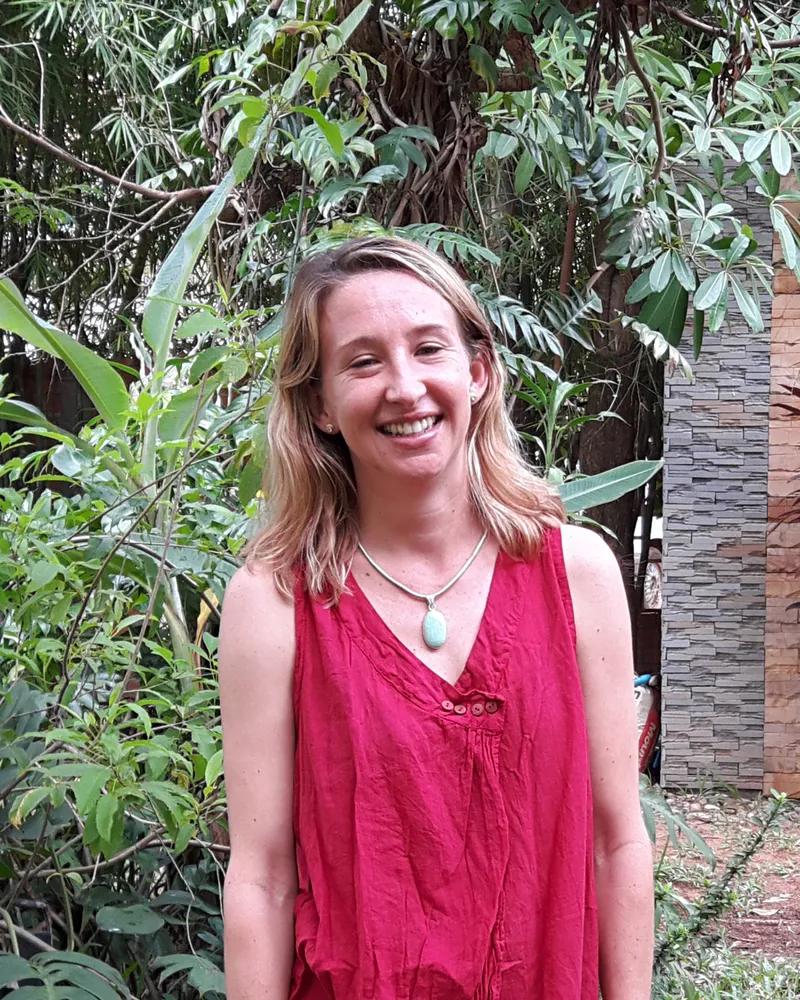Megan English, PhD

Megan English, PhD
Title
Location
Education
Teaching
about
Faculty Profile
An Australian citizen, born in Sri Lanka, I have spent much of my life in Asia, including the Philippines, Indonesia, Malaysia, Thailand, and Cambodia. As a result, I have developed a passion for Asian wildlife and culture, and have pursued a research career involving the study of wildlife conservation and animal behavior in the region. During my PhD program I taught undergraduate Biology students in the subjects of Animal Diversity and Conservation. In Northern Thailand I have trained students, international volunteers and student interns in research methodologies for biodiversity surveys, botanical surveys and elephant behavior and ecology.
For the past fifteen years my research has focused on wild and captive elephant behavior and ecology. After my undergraduate degree, my Honors year involved studying stress behavior in captive elephants at Melbourne Zoo, and the influence of enrichment activities on this behavior. For my PhD research I lived for two years in Borneo, studying the resource-use and ecology of a population of 200 wild Bornean pygmy elephants that inhabit the Lower Kinabatangan floodplain region of North-Eastern Sabah. For most of this time I camped in the forest and tracked the herd of elephants each day to determine their food-plant preferences, impact on vegetation, and plant recovery rates. This study also involved habitat type classification based on biological and physical characteristics of the forest within the elephants’ range. I collaborated with government agencies and local NGOs that worked alongside the community, involving the local people in conservation initiatives whilst providing alternative livelihoods that not only helped with income for families, but protected the forest and its wildlife in the process.
After completing my PhD, I worked as a short-term consultant for the Office of Heritage and Environment to help design remote sensing mapping of koala habitat on the North Coast of NSW, Australia. Then I returned to Asia to work as a Scientific Officer in Northern Thailand. This position involved supervising scientific research projects for large groups of international interns and volunteers with varying levels of scientific and field experience. I designed research projects that would most effectively teach students useful scientific techniques that could be applied to various species and habitat types. The training in quantitative data collection included quadrat sampling for assessing biodiversity of plants and invertebrates, line transects for conducting botanical surveys and measuring plant community composition, small mammal trapping, and direct observations of elephant behavior using either interval or continuous sampling techniques. Qualitative research and training involved interviews with local villagers on medicinal plants used in traditional Karen (hill tribe) culture and the impact and perception of ecotourism on a local community.
In the Mekong region I am particularly interested in pursuing research and teaching that explores the human-wildlife interface, urban ecology, illegal wildlife trade and the role of animals in traditional culture.
SCHOLARSHIPS AND FUNDING
2010-2014 PhD Scholarship from Victoria University of Wellington, NZ
2010-2014 Field research funding for the entire project from Zoos Victoria, Australia
Professional Activities
Member – IUCN Asian Elephant Specialist Group
outputs
Publications
Megan English and Gabriel Silva Collins
English, M., Gillespie, G., Ancrenaz, M., Ismail, S., Goossens, B., Nathan, S., & Linklater, W. Journal of Tropical Ecology, 30: 371-379
English, M., Kaplan, G., & Rogers, L.J. (2014). PeerJ 2:e471
English, M., Ancrenaz, M., Gillespie, G., Goossens, B., Nathan, S., & Linklater, W (2014). Current Zoology, 60: 551-559.
English, M., Gillespie, G., Goossens, B., Ismail, S., Ancrenaz, M., & Linklater, W. (2015). PeerJ, 3, e1030.
Megan ENGLISH, Kameron WINTERS, Mary LASATER. Mark DAINTY, Michael MEYERHOFF, & Philipp WAGNER
Presentations
Presentation at The 15th Annual International Elephant and Rhino Symposium (International Elephant Foundation), Singapore Zoo, 2016.